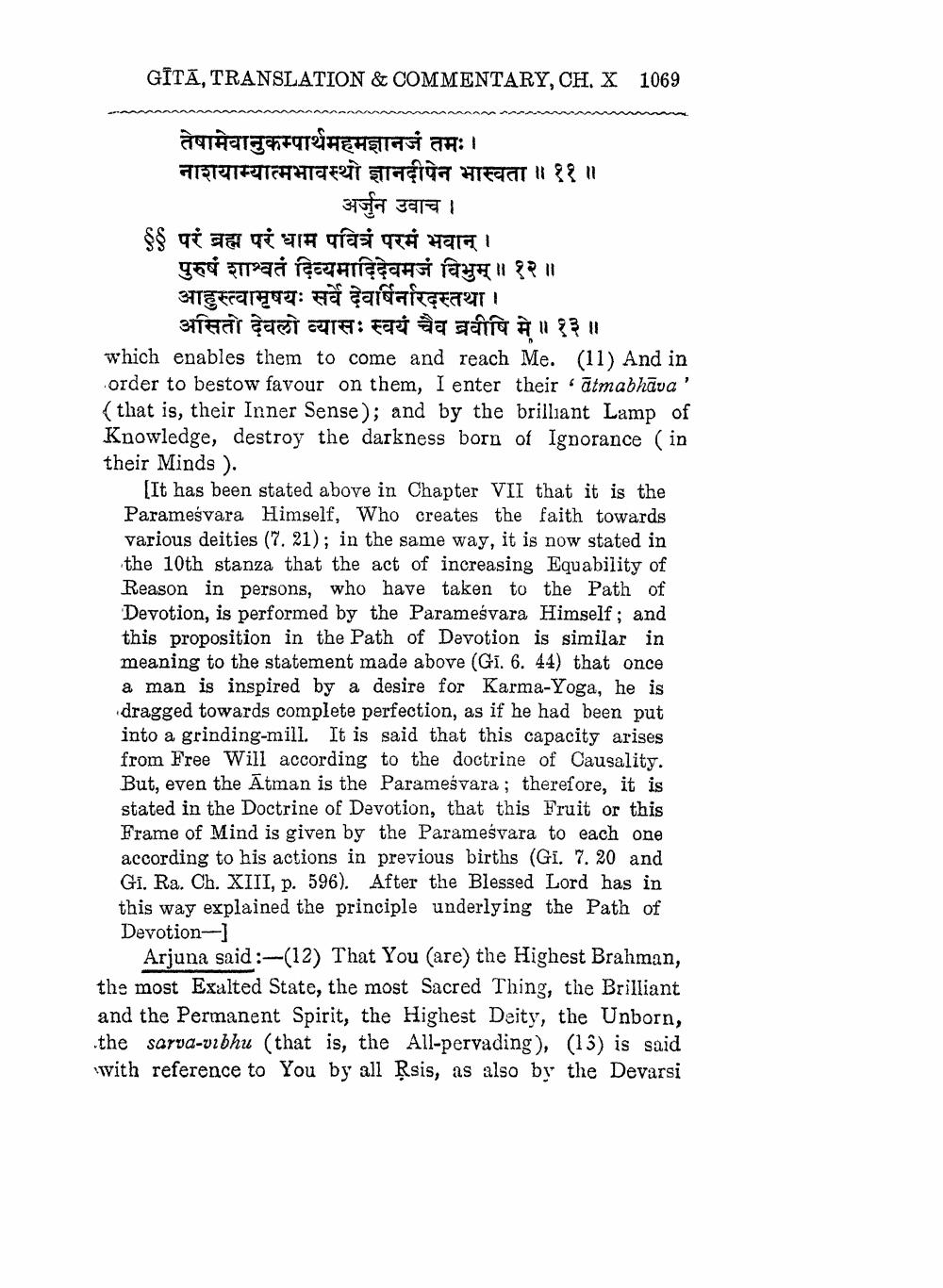________________
GITĀ, TRANSLATION & COMMENTARY, CH. X 1069
w
तेषामेवानुकम्पार्थमहमज्ञानजं तमः। नाशयाम्यात्मभावस्थो ज्ञानदीपेन भास्वता ॥११॥
$$ परं ब्रह्म परं धाम पवित्रं परमं भवान् ।
पुरुषं शाश्वतं दिव्यमादिदेवमजं विभुम् ॥ १२ ॥ आहुस्त्वामृषयः सर्वे देवर्षि रदस्तथा।
असितो देवलो व्यासः स्वयं चैव ब्रवीषि मे ॥ १३ ॥ which enables them to come and reach Me. (11) And in order to bestow favour on them, I enter their ātmabhāva' (that is, their Inner Sense); and by the brilliant Lamp of Knowledge, destroy the darkness born of Ignorance (in their Minds ).
[It has been stated above in Chapter VII that it is the Parameśvara Himself, Who creates the faith towards various deities (7. 21); in the same way, it is now stated in the 10th stanza that the act of increasing Equability of Reason in persons, who have taken to the Path of Devotion, is performed by the Parameśvara Himself; and this proposition in the Path of Devotion is similar in meaning to the statement made above (Gi. 6. 44) that once a man is inspired by a desire for Karma-Yoga, he is dragged towards complete perfection, as if he had been put into a grinding-mill. It is said that this capacity arises from Free Will according to the doctrine of Causality. But, even the Ātman is the Parameśvara ; therefore, it is stated in the Doctrine of Devotion, that this Fruit or this Frame of Mind is given by the Parameśvara to each one according to his actions in previous births (Gi. 7. 20 and Gi. Ra. Ch. XIII, p. 596). After the Blessed Lord has in this way explained the principle underlying the Path of Devotion-]
Arjuna said:-(12) That You (are) the Highest Brahman, the most Exalted State, the most Sacred Thing, the Brilliant and the Permanent Spirit, the Highest Deity, the Unborn, the sarva-vibhu (that is, the All-pervading), (13) is said with reference to You by all Ķsis, as also by the Devarsi




